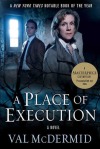 Reading (and translating) the Aeneid was one of the highlights of my high-school Latin classes, but somehow I was never able to warm up to Aeneas, perhaps because of how he treated Dido. Even at that early (and for me, somewhat unenlightened!) age, I was completely sympathetic to Dido’s side of things; she showered love and affection on Aeneas, and he said that he loved her too, and then it was all “nope, have to go found this mystical city off in the wilds of Latium, sorry!” Thanks to that episode, I must confess that I was always secretly cheering for Turnus in the end, even though he was doomed to lose his life and his fiancée, Lavinia, since Aeneas was the mystical great-great-great-something-or-other-granddaddy of Augustus Caesar for whom Virgil was providing this mythopoetic rival to the Iliad and the Odyssey in order to provide Caesar with divine descent.
Reading (and translating) the Aeneid was one of the highlights of my high-school Latin classes, but somehow I was never able to warm up to Aeneas, perhaps because of how he treated Dido. Even at that early (and for me, somewhat unenlightened!) age, I was completely sympathetic to Dido’s side of things; she showered love and affection on Aeneas, and he said that he loved her too, and then it was all “nope, have to go found this mystical city off in the wilds of Latium, sorry!” Thanks to that episode, I must confess that I was always secretly cheering for Turnus in the end, even though he was doomed to lose his life and his fiancée, Lavinia, since Aeneas was the mystical great-great-great-something-or-other-granddaddy of Augustus Caesar for whom Virgil was providing this mythopoetic rival to the Iliad and the Odyssey in order to provide Caesar with divine descent.
Jo Graham’s Black Ships is a re-imagining of the Aeneid from the POV of Gull, who apparently is destined to become the Cumaean Sibyl after having many adventures with Aeneas and his gang along the way. Graham actually makes me really like Aeneas, and by substituting a kind of nutty Egyptian princess named Basetamon who wants to keep Aeneas’s corpse around to join her in the afterlife for Dido, this Aeneas is a bit less of a cad to me! I love the simple, yet powerful language that Graham uses, and she won me over right from the beginning by stating that one of her main inspirations was Michael Wood’s marvellous TV series (and accompanying book), In Search of the Trojan War (though given that this was written in 2007-2008, I think she might have used a bit more recent scholarship too!) Gull herself is a fascinating (and not too anachronistic-sounding) character, and I like the glimpses of others whom we meet along the way, as well as Graham’s explanation of the “Sea Peoples” and the Sack of Troy Redux.
I only have two relatively minor quibbles with the book: The first is that, unlike Homer, Virgil was inventing a mythology from whole cloth in many ways, and that’s why, anachronistic or not, the princess whom Aeneas loves and leaves HAD to be Carthaginian, because that’s Virgil’s explanation for the sworn enmity between Rome and Carthage (and it was victory over Carthage in the end that made Rome a great power, not victory of Egypt.) So I find the Egyptian interlude a bit unsettling, though fascinating. Secondly, and this point is REALLY minor, but I wish that she hadn’t decided to make Aeneas tromp around under the rather silly-sounding nickname of “Neas.” No one else (except Xandros, but that one actually sort of makes sense!) has a nickname, and it keeps making me think the character is a little boy. (I know he’s meant to be young, not the patriarch of Virgil’s imaginings, but still …)
(Read from May 5 to May 6, 2010)









